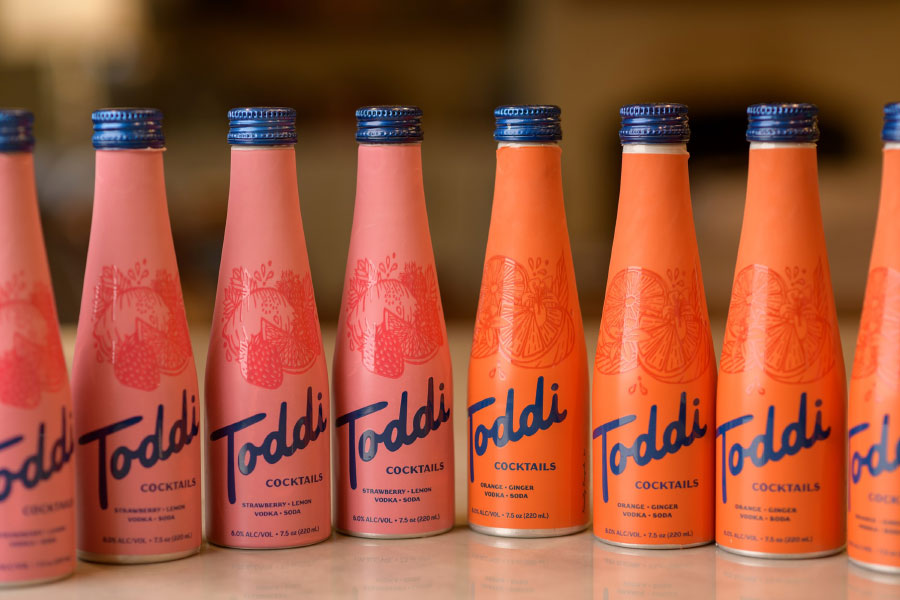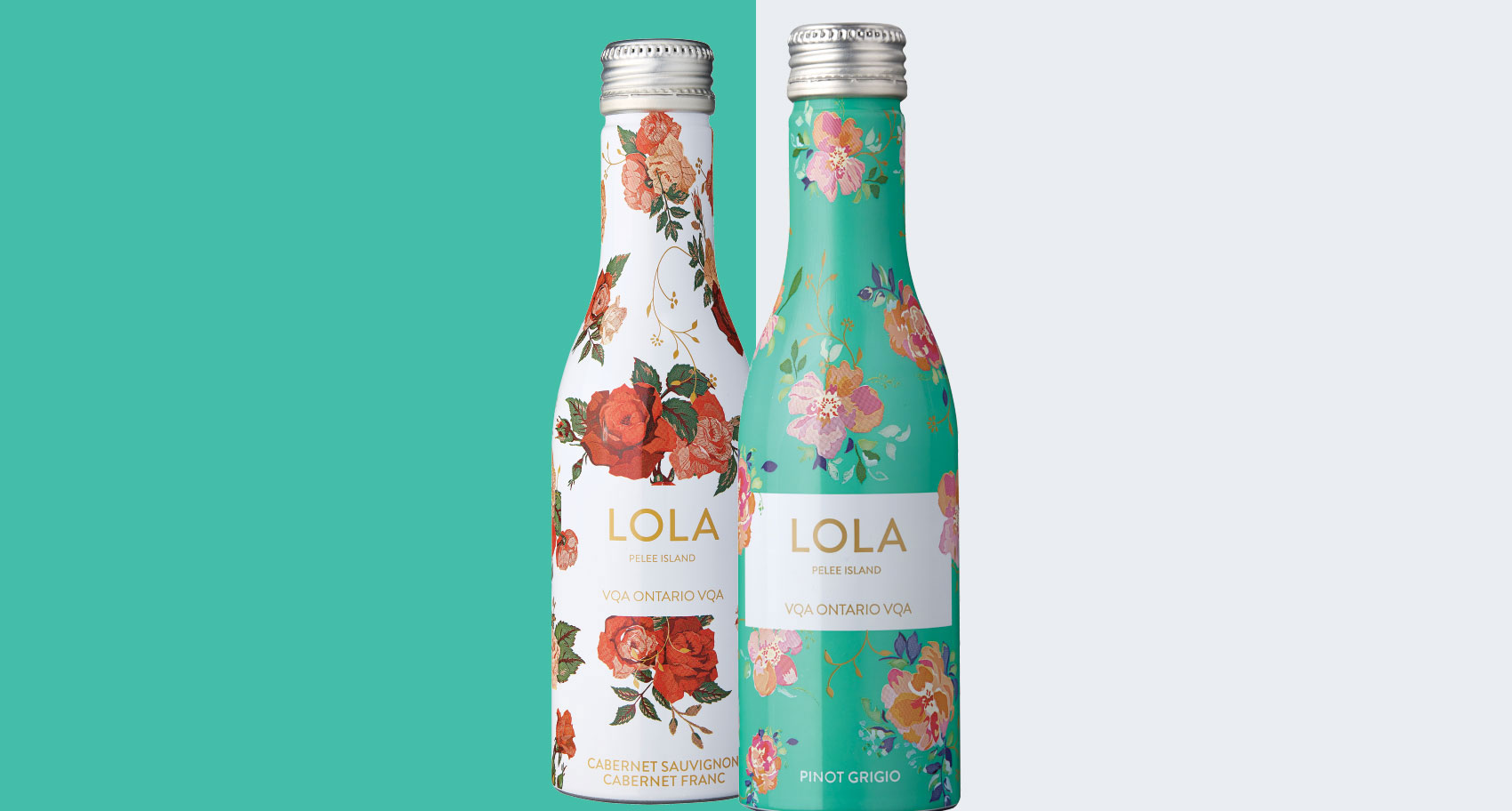Kingston, Ont., an industrious city nestled on the northwest shore of Lake Ontario, is known as an aluminum town.
It started in 1939 when Alcan built an aluminum sheet rolling plant for making military aircraft to support Allied forces in the Second World War. The plant also housed an innovative research facility, which helped the Canadian aluminum mining and manufacturing company make its mark in other major sectors like automotive, transportation, and beverage and packaging.
With some facilities shutting down or moving elsewhere, the aluminum industry in Kingston isn’t as big as it once was. However, a wealth of knowledge and expertise around aluminum manufacturing remains in the city – something Kingston Aluminum Technology (KAT) was eager to tap into when it launched its aluminum container business back in 2012.
KAT CEO Ben Pilon says the help his company received from retired folks who used to work in the aluminum industry was tremendously valuable.

“We found a lot of people with a technical understanding of aluminum, how it flows and moves and how to process it,” said Pilon. “We couldn’t have done this alone. We had a lot of people with decades and decades of experience work with us, and we’re thankful for them.”
Pilon’s mother, Betty, is the president and founder of KAT. She’s an aluminum veteran herself; in her previous work at Montebello Packaging in Kingston, she oversaw the mass production of aluminum packaging used by such major names as L’Oréal, Johnson & Johnson and Pfizer. Pilon is no stranger to the industry either. He got his first job in aluminum manufacturing at age 15 and has been involved ever since.
Pilon says KAT spent a great deal of time and energy on research and development, which resulted in a patented technology called Alumishape. It’s this process that enables the company to produce custom-shaped aluminum bottles for clients in the beer, wine and spirits industries, and in other sectors like pharma and cosmetics as well.
“We found different ways to manipulate the aluminum,” said Pilon.
Benefits of custom shaping
Pilon notes for their alcoholic beverage customers, there’s a lot of value in custom-shaped bottles. For one, they’re something out of the ordinary and can really stand out on store shelves.
“A lot of our customers are very passionate about their products, and they want a different look and feel,” he said. “For a smaller company, they just might be looking to make an impression and be eye catching.”
“A lot of our customers are very passionate about their products, and they want a different look and feel.”
Ben Pilon, Kingston Aluminum Technology
Pilon says for some customers, the shape of their product’s bottle is an essential part of their brand, so being able to retain that unique shape when transitioning the packaging from plastic or glass to aluminum is a major plus. “Some alcohol companies have really distinguished themselves with their look over the last 50 or 100 years, so they really want to stick with it,” he said.
Pilon says the custom-shaped bottles for their beer and wine customers tend to resemble the traditional glass or plastic forms for those beverages. However, he adds there are exceptions where some beer and wine makers are looking for something completely different.
“I think it’s just people have become so used to and familiar [with] certain shapes,” said Pilon. “I think that those will always be common. Then as companies want to try something new, we’re happy to work with them.”
Pilon says there’s generally a lot more flexibility when it comes to creating aluminum bottle shapes for liquor companies, since spirits have been sold in a wide range of differently-shaped containers over the years. He adds a growing number of customers are turning to square bottles, which makes them easier to transport and store.
The custom shaping offered by KAT can also include a logo or graphics imprinted on the bottles; another way customers can reinforce their branding. Moulds for each unique custom-shaped bottle are created with a 3D printer, and KAT has in-house designers who can complete all the design work or simply help customers design their bottles.
KAT has a second production line that pumps out bottles in approximately 15 standard shapes.
Pilon says the current split is around 50/50 in terms of orders of custom-shaped and standard-shaped bottles, with the total output for the two lines at about 50 million pieces annually. KAT’s customers are primarily in Canada and the United States, but the company has started shipping products to Europe as well.
Less aluminum required
Pilon says the KAT team looked at traditional production lines for aluminum packaging that had massive energy requirements and thought there had to be a better way. He adds part of the improvements came from looking at other industries that have different technologies and different ways of doing things.
According to Pilon, the company’s proprietary technology enables KAT to produce a lighter bottle – one that requires 30 per cent less aluminum than a traditional aluminum can or bottle – on a smaller production line, resulting in energy savings of 60 per cent per bottle. It also features an 80 per cent reduction in volatile organic chemical emissions.
KAT’s production process is designed to make changeovers between customer orders efficient and small batch orders easier to complete. Pilon says this enables anyone, from start-ups to large brands, to work with KAT. While KAT does individual orders as large as five million bottles, Pilon says their sweet spot is generally in the 15,000 to 250,000 range.
Small beverage companies may need small product runs because they lack sufficient funds to buy large quantities of raw materials, or don’t have the storage capacity for large volumes of product. Pilon says the “just in time” inventory model generally works better in these instances, and the 30 or so folks who work at KAT are happy to help out.
“We really like working with the smaller companies, watching them grow,” Pilon said. “We started off as a small company ourselves, so we understand the challenges of starting a business.”
He notes some of the best companies KAT has worked with over the years started with small orders and have since grown into medium- and large-sized businesses. “That’s really nice to see,” he said.
KAT’s work in this area was recognized at the SIAL Canada food innovation trade show in 2023. The company won the Own the Change special award for its production process that uses less aluminum and makes aluminum bottles more accessible to smaller companies by offering small runs.




